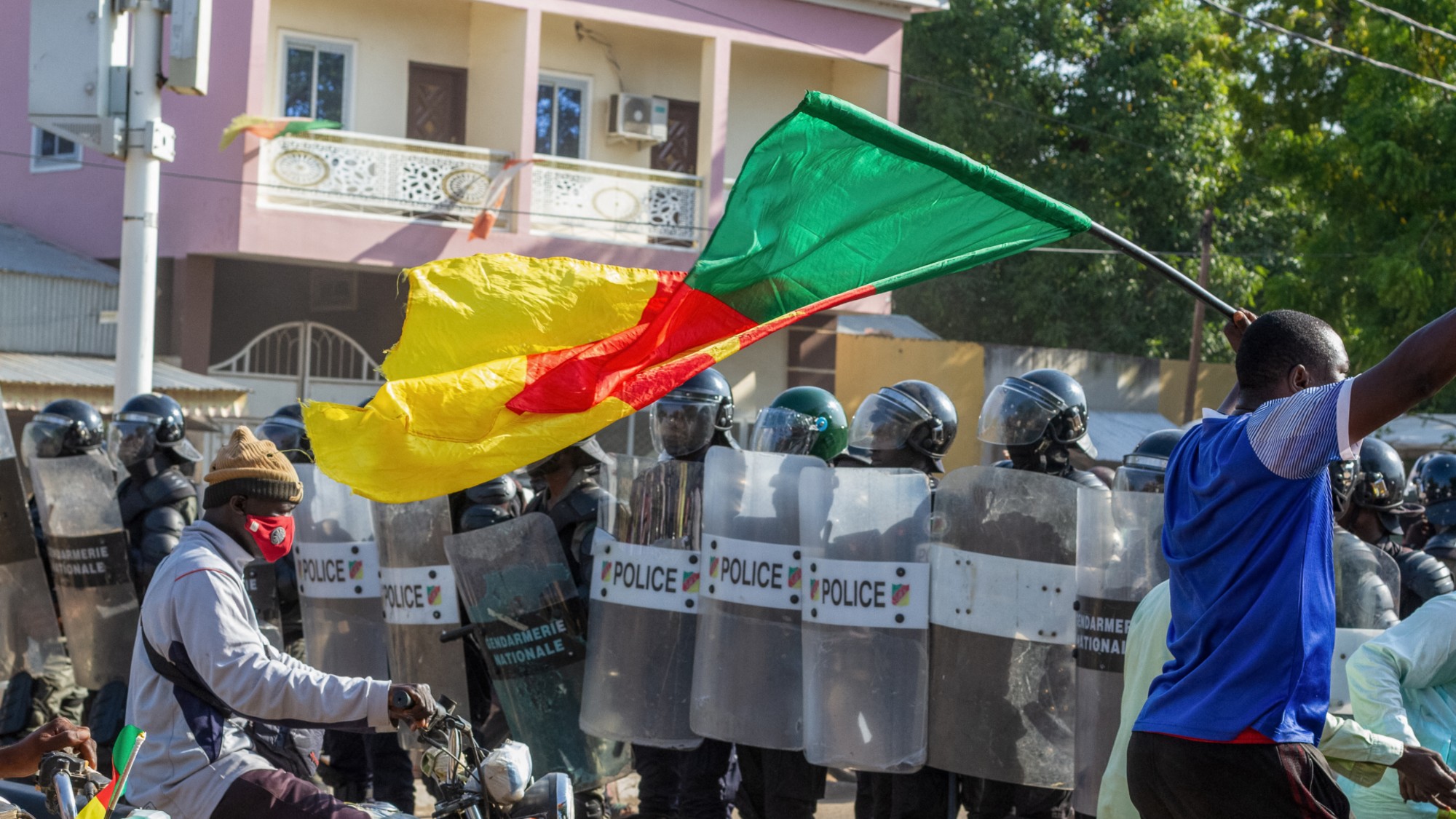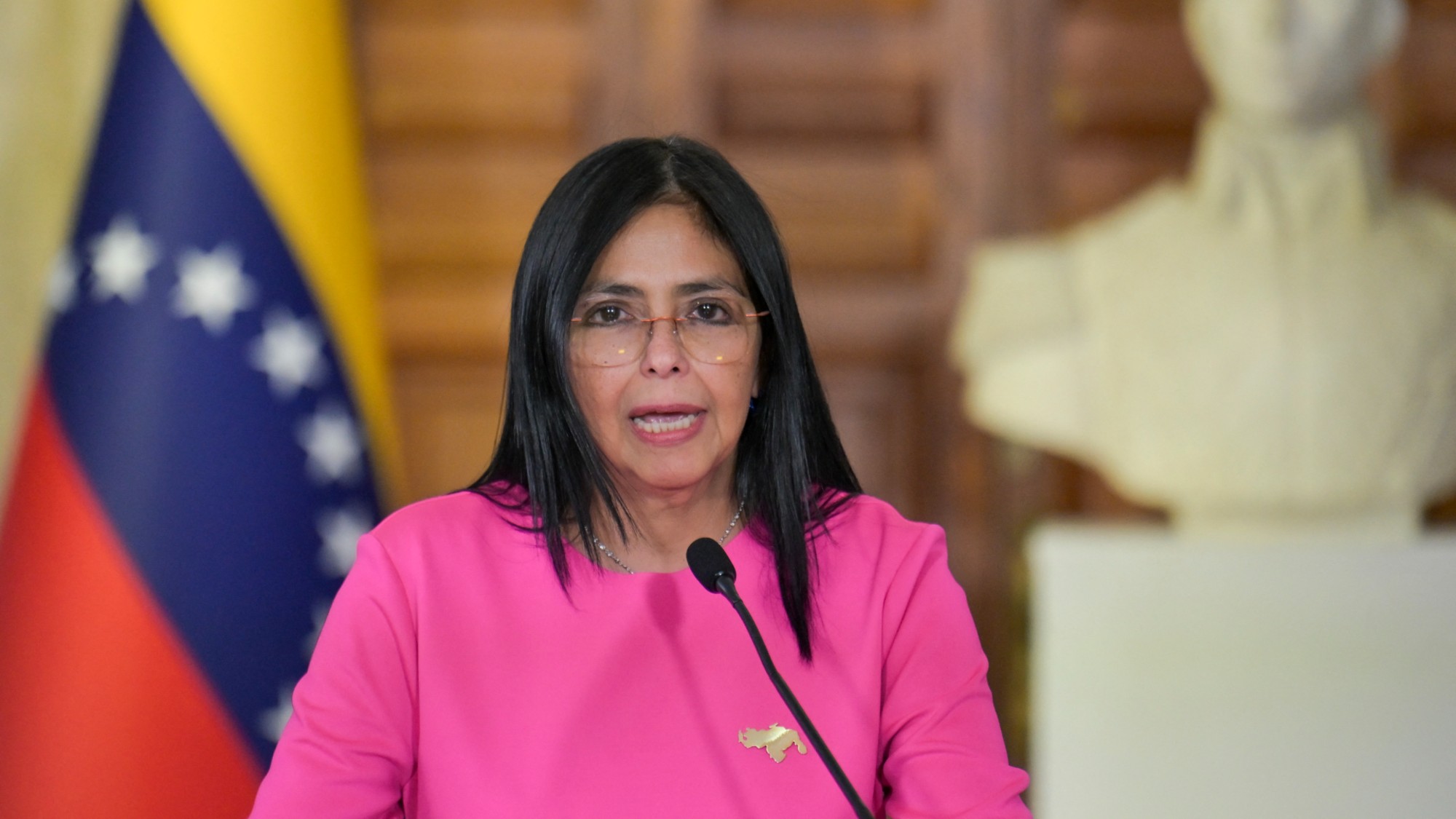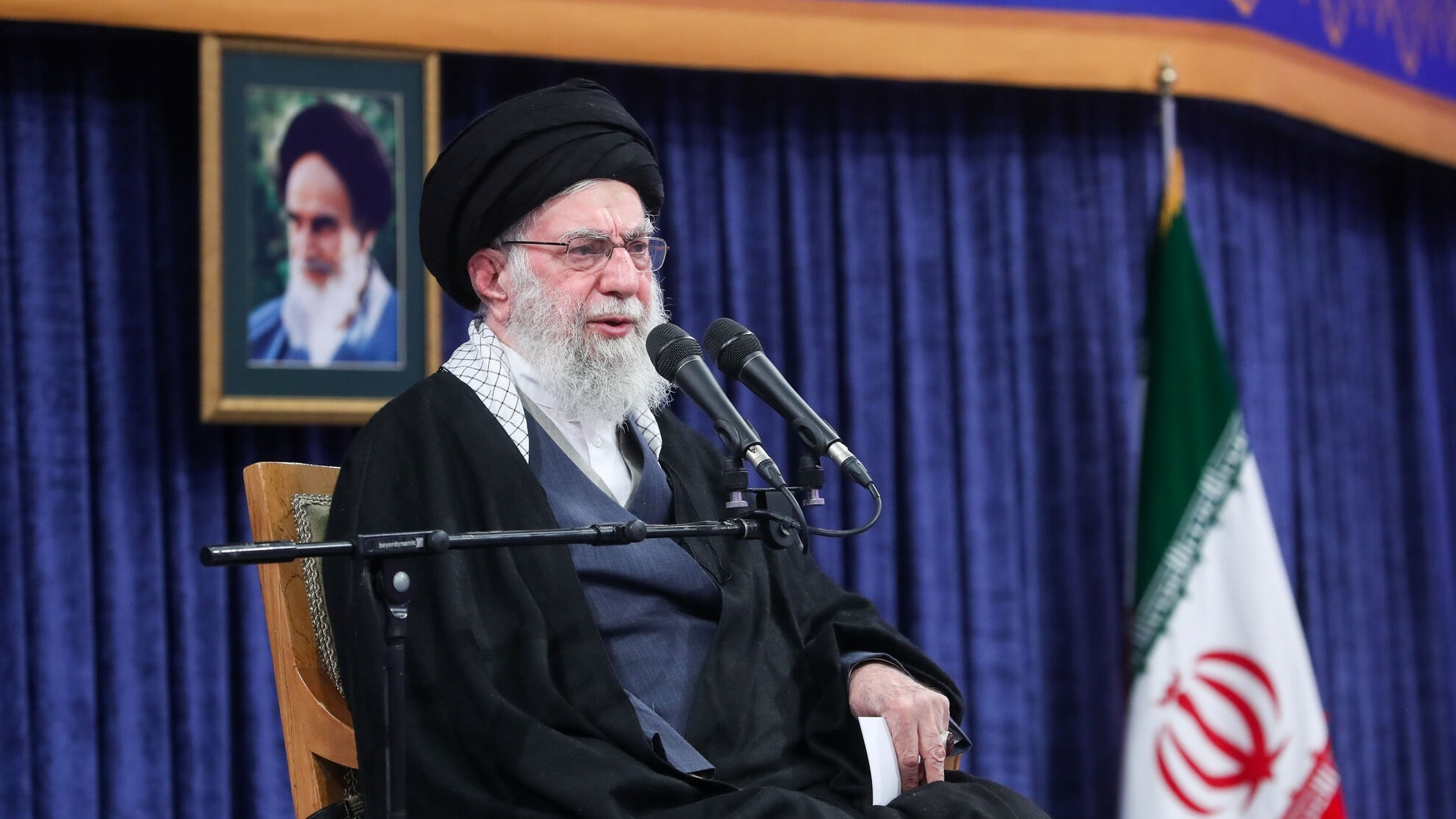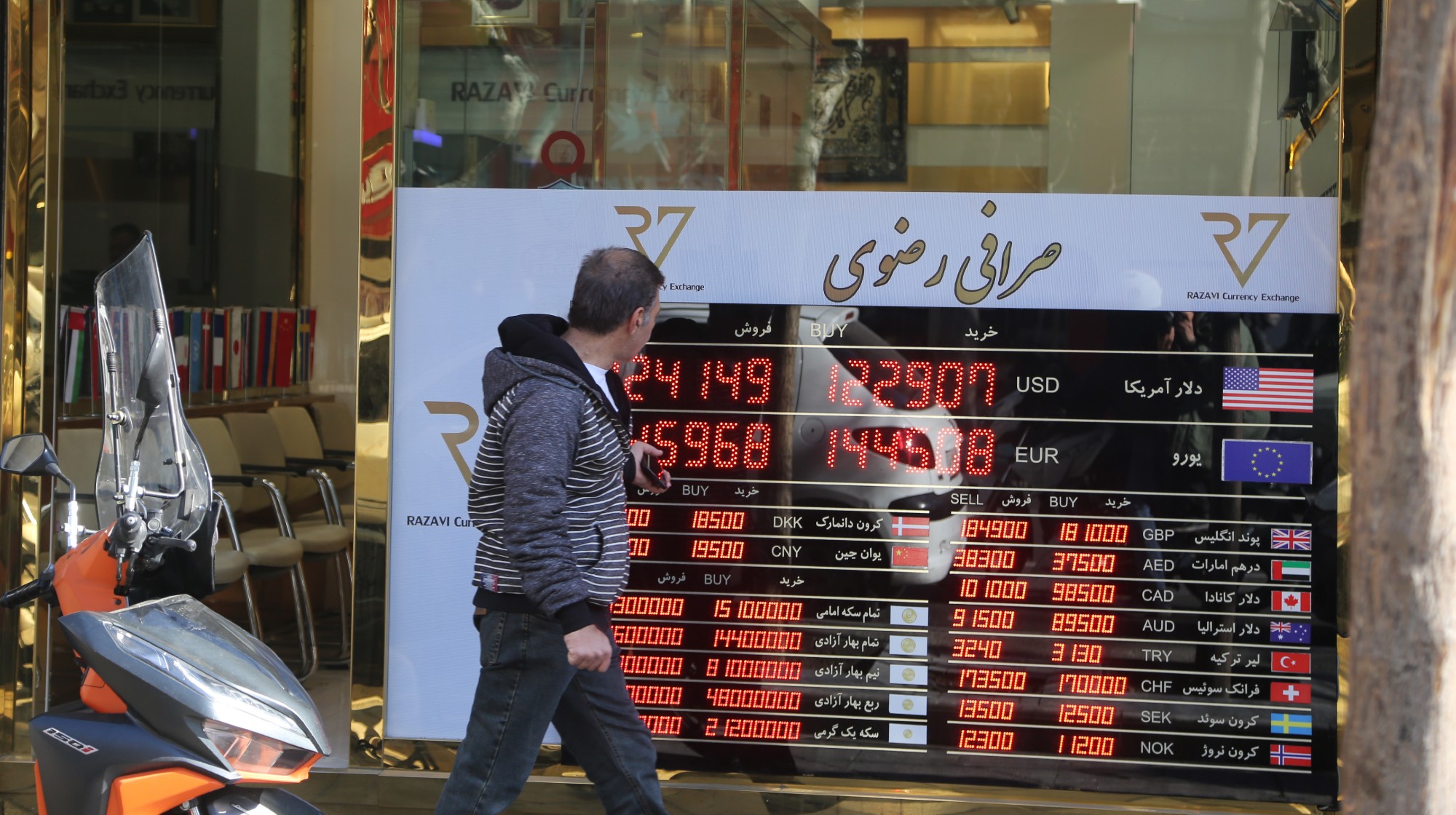Protesters fight to topple one of Africa’s longstanding authoritarian nations
Cameroon’s president has been in office since 1982


A free daily email with the biggest news stories of the day – and the best features from TheWeek.com
You are now subscribed
Your newsletter sign-up was successful
People are taking to the streets in Cameroon, hoping to disrupt one of Africa’s most enduring dictatorships. The country’s president, Paul Biya, has been in office for more than four decades and has been reelected numerous times in contests that are not considered free or fair. But the most recent presidential election, held earlier this month, saw tensions spill over after Cameroon’s Constitutional Council once again declared Biya the winner.
Tampering allegations
The friction emerged when opposition candidate Issa Tchiroma Bakary claimed victory in the presidential election and urged Biya to concede. But Biya, who at 92 is the world’s oldest elected leader, was declared the election winner with 53% of the vote. The council said Tchiroma received 35% of the vote. Biya “rejected Tchiroma’s claim of victory and accused the opposition candidate of trying to disrupt the electoral process,” said The Associated Press. After the election, some “pockets of protests broke out in several cities over the allegations of election fraud.”
This includes claims made by Tchiroma, who said the election was marred with “vote tampering, echoing civil society groups’ earlier reports of ‘several irregularities,’ including attempted ballot stuffing,” said the AP. The group monitoring the election, the National Episcopal Conference of Cameroon, also said the race was “marked by a number of irregularities.” Tension eventually devolved into violence, most notably a fire that broke out in one of the governing party’s offices. Many “photographs and videos of the blazing building,” located in Cameroon’s western region, were “shared widely on TikTok and other social media,” said The New York Times.
The Week
Escape your echo chamber. Get the facts behind the news, plus analysis from multiple perspectives.

Sign up for The Week's Free Newsletters
From our morning news briefing to a weekly Good News Newsletter, get the best of The Week delivered directly to your inbox.
From our morning news briefing to a weekly Good News Newsletter, get the best of The Week delivered directly to your inbox.
At least “four people have been killed in clashes” in the country’s economic capital, Douala, while “police fired tear gas” into crowds in Tchiroma’s home city of Garoua, said Al Jazeera. The protesters were also angered by an internet outage that partially cut off web access for the country. Officials denied responsibility and blamed the outage on a “submarine cable cut,” but the government also “shut down the internet to suppress demonstrations in 2017,” said Bloomberg.
Test of stability
Despite the efforts of the protesters, many feel that Biya’s grip on Cameroon has allowed him to stay in power regardless of any election controversies. With Biya now declared the winner, he will “extend his presidency by another seven years and lead the oil-exporting nation until he’s almost 100,” said Bloomberg. Most people in Cameroon, where the “median age is 18, have never experienced life under any other president.”
The “growing tensions have sparked fears of post-electoral violence in a country already rocked by a separatist conflict in the Anglophone regions,” as well as an “insurgency in the Far North region” by the jihadist militant group Boko Haram, said BBC News. The election also took place against the “backdrop of political stagnation” and a “cost of living crisis,” said The Guardian, all while the “most credible opposition candidate, Maurice Kamto, has had his candidacy barred by the courts.”
“What comes next will be a test for Cameroon’s stability,” said Comfort Ero, the president of non-profit International Crisis Group, to The Africa Report. Biya’s party has “maintained an iron grip on power, thanks to constitutional amendments, strong state control and a fragmented opposition,” so another victory of his would “carry global symbolism” toward authoritarianism, said Business Insider Africa. For many in Cameroon, the election is “raising questions about the future of leadership in one of Africa’s longest-standing regimes.”
A free daily email with the biggest news stories of the day – and the best features from TheWeek.com
Justin Klawans has worked as a staff writer at The Week since 2022. He began his career covering local news before joining Newsweek as a breaking news reporter, where he wrote about politics, national and global affairs, business, crime, sports, film, television and other news. Justin has also freelanced for outlets including Collider and United Press International.
-
 How the FCC’s ‘equal time’ rule works
How the FCC’s ‘equal time’ rule worksIn the Spotlight The law is at the heart of the Colbert-CBS conflict
-
 What is the endgame in the DHS shutdown?
What is the endgame in the DHS shutdown?Today’s Big Question Democrats want to rein in ICE’s immigration crackdown
-
 ‘Poor time management isn’t just an inconvenience’
‘Poor time management isn’t just an inconvenience’Instant Opinion Opinion, comment and editorials of the day
-
 Grok in the crosshairs as EU launches deepfake porn probe
Grok in the crosshairs as EU launches deepfake porn probeIN THE SPOTLIGHT The European Union has officially begun investigating Elon Musk’s proprietary AI, as regulators zero in on Grok’s porn problem and its impact continent-wide
-
 Panama and Canada are negotiating over a crucial copper mine
Panama and Canada are negotiating over a crucial copper mineIn the Spotlight Panama is set to make a final decision on the mine this summer
-
 Iran unleashes carnage on its own people
Iran unleashes carnage on its own peopleFeature Demonstrations began in late December as an economic protest
-
 Trump, Iran trade threats as protest deaths rise
Trump, Iran trade threats as protest deaths riseSpeed Read The death toll in Iran has surpassed 500
-
 Iran cuts internet as protests escalate
Iran cuts internet as protests escalateSpeed Reada Government buildings across the country have been set on fire
-
 Delcy Rodríguez: Maduro’s second in command now running Venezuela
Delcy Rodríguez: Maduro’s second in command now running VenezuelaIn the Spotlight Rodríguez has held positions of power throughout the country
-
 Iran’s government rocked by protests
Iran’s government rocked by protestsSpeed Read The death toll from protests sparked by the collapse of Iran’s currency has reached at least 19
-
 Why is Iran facing its biggest protests in years?
Why is Iran facing its biggest protests in years?TODAY’S BIG QUESTION Iranians are taking to the streets as a growing movement of civic unrest threatens a fragile stability
